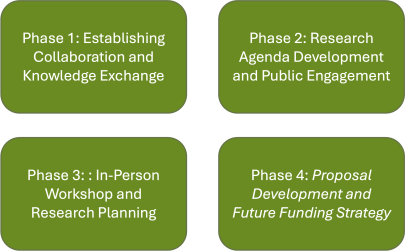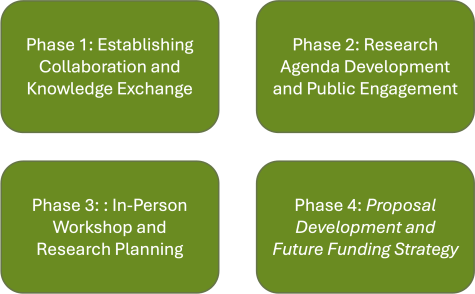ColibrAI: Research Lab and Network for Coliberative Development of AI
Funding: Unite! University
Duration: 1.October 2025 – 31.January 2027 (15 months)
Abstract
ColibrAI is a project part of Unite! University, that brings together three newly collaborating teams from KTH Royal Institute of Technology (Sweden) Aalto University (Finland) and TU Darmstadt (Germany) to leverage their expertise in AI justice, participatory design and decolonial perspectives.
The project aims to facilitate knowledge exchange, foster research synergies,and establish long-term collaboration in participatory AI.
Our goal is to develop a shared research agenda that prioritizes equity, justice, and co-liberation in AI frameworks, ensuring that AI systems are designed to be inclusive, participatory and community-driven.
The project begins with a review of existing community-centric AI initiatives to establish a solid foundation for collaboration, align research goals, and identify major funding opportunities.
The interdisciplinary participatory AI research agenda will be iteratively defined through online workshops and further refined during an in-person workshop, leading to the development of collaborative publications that disseminate findings and strengthen interdisciplinary dialogue. The project is intended as start-up financing for a more comprehensive future project.
Project Description
Contact Persons
Project management:
Amir H. Payberah (KTH Royal Institute of Technology)
Nina Grünberger (TU Darmstadt) (Contact)
Andrea Botero (Aalto University)



